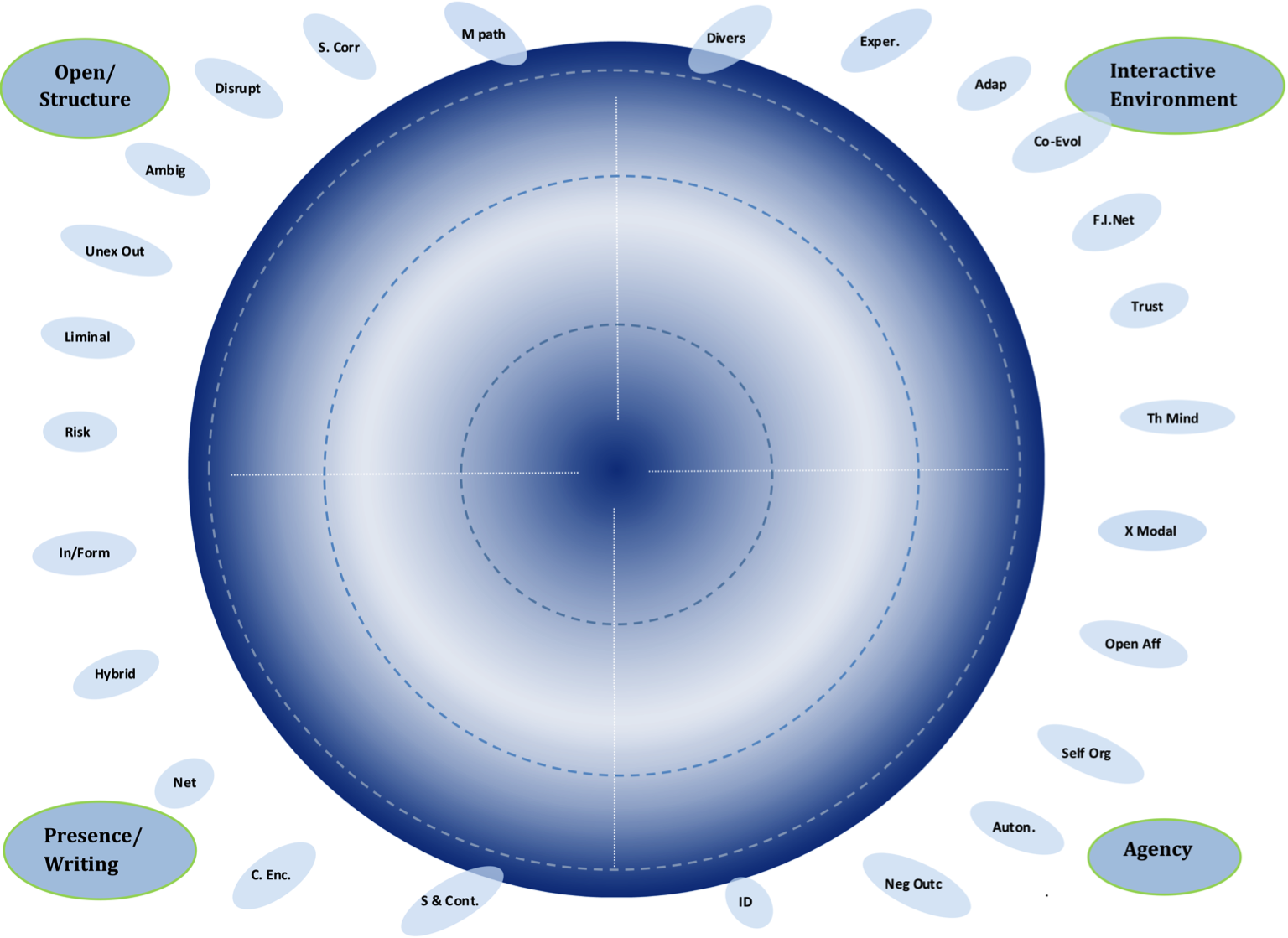Phillip - thanks so much for taking the time to provide such detailed response to these questions. They are all fascinating and worthy of attention (the questions and your responses), but I'm going to select two of your responses that have jumped out at me.
1. I would venture that all learning involves a transformation of identity. I completely agree. Learning is about learning who we are and as Etienne Wenger has so eloquently written - learning, meaning and identity are all intertwined. I would be very interested to hear more about what you mean by transformation. How would we recognise this transformation? You may have noticed that one of the factors we use in drawing footprints of emergence is Identity. When I am reflecting on learning, I think I can recognise when my identity has been 'changed' in some way by the learning event, but it's difficult to pinpoint what caused the change or exactly what the nature of that change has been.
2. I believe (as do others) that we have learned all we need to know by the age of 4-5. I would love to know who the others are, because this feels so counter-intuitive to me. How does it fit with the fact that our brain cells are growing and developing until we are into our 20s? And this thought has made me wonder whether there is a difference in the way little children experience emergent learning - to the way in which adults experience it. My experience tells me that little children, in their play, experience emergent learning all the time - and I think this also relates to embodied learning.
Thanks for your thought-provoking post Phillip. Plenty for me to chew on here :-)
